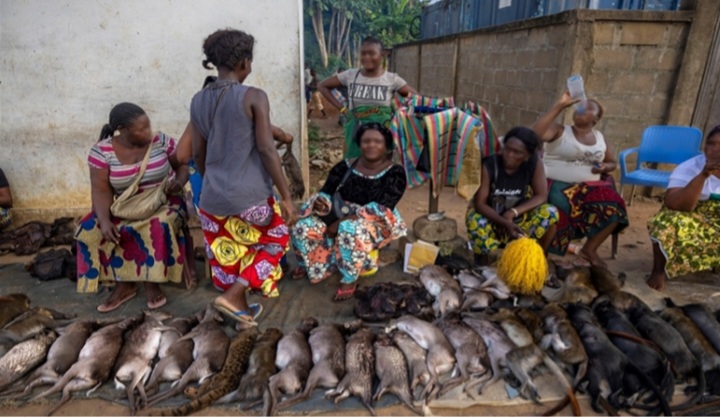S/Africa Aims To Develop Wildlife Industry Through Game Meat Consumption

Wildlife conservation is of global importance. Different countries have different laws that control the killing and consumption of wildlife so as to prevent some species from going into extinct.
Wild life are also a source of economic development through tourism. But recently, the South Africa government has unveiled an unconventional strategy by encouraging people to consume more of these magnificent creatures.
South Africa’s game meat industry has a projected value of 27.6 billion rand ($1.5 billion) by 2036, compared to 4.6 billion rand in 2020.
The decision according to reports Is not just about satisfying palates, but preserving the delicate balance of ecosystems and promoting Black ownership in the wildlife-use sector in the country.
According to Authorities, these animals present an opportunity to address multiple challenges.
The Chief Director for Biodiversity Economy and Sustainable Use at the Department of Forestry, Fisheries, and the Environment (DFFE), in South Africa, Khorommbi Matibe, who commented on the decision emphasizes the health benefits of game meat, saying “It’s low-cholesterol.”
Matibe clarified that the country do not encourage captive breeding, adding that these animals are harvested from the wild. This approach aligns with South Africa’s sustainable-use philosophy, which began with a 1991 act, granting farmers the right to own wildlife on their lands.
He said, vast tracts of farmland support hunting, ecotourism, and a thriving wildlife auction circuit as the country boasts over 20 million large wild animals, with four-fifths residing on private land.
It is argued that beyond the health considerations, game meat offers an eco-friendly alternative to beef.
Observers note that in a nation where barbecues (locally known as “braais” or “shisa nyamas”) are a cherished pastime, this shift could have a significant impact. Game generates less methane than traditional livestock, and its consumption doesn’t necessitate clearing forestland—a natural carbon sink.
Reports have it that thousands of antelope and other plains game, including zebras, are culled annually to prevent ecosystem overload. Unfortunately, much of this meat goes to waste due to improper processing.
The DFFE’s ambitious biodiversity economy strategy seeks to change that. By regulating the industry, ensuring food safety, and promoting traceability, South Africa hopes to elevate game meat consumption both domestically and abroad.
While exports remain modest (around 2.5 billion rand in beef exports annually), South Africa’s game meat is gaining traction. Access to markets like China and a growing consumer base seeking sustainable, biodiversity-friendly products position the industry for success.
